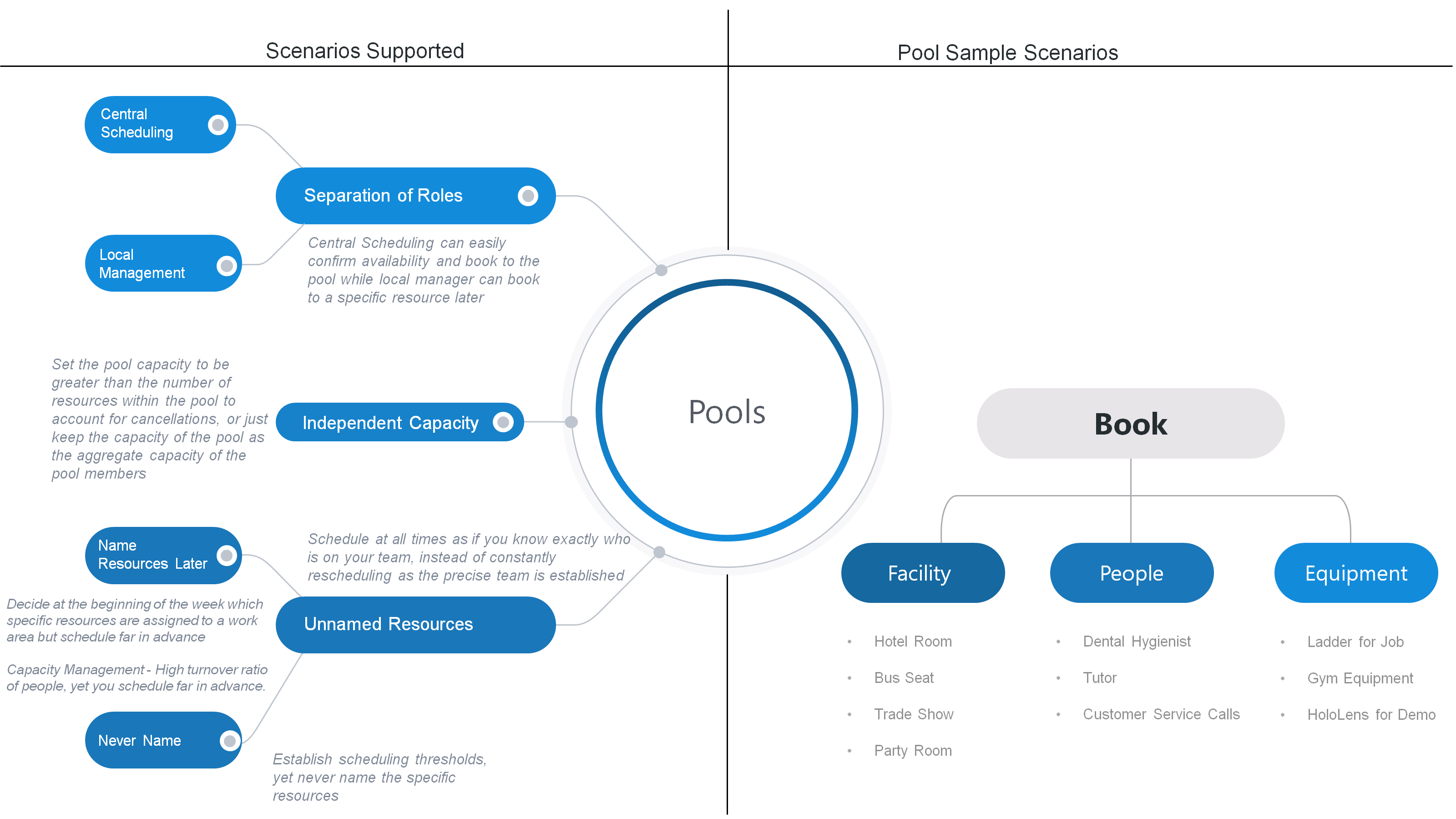Resource pools
Important
This content is archived and is not being updated. For the latest documentation, see Microsoft Dynamics 365 product documentation. For the latest release plans, see Dynamics 365 and Microsoft Power Platform release plans.
Note
These release notes describe functionality that may not have been released yet. To see when this functionality is planned to release, please review Summary of what’s new. Delivery timelines and projected functionality may change or may not ship (see Microsoft policy). For detailed information about our products, visit the Customer Engagement documentation.
Associate resources to resource pools to enable schedulers to book requirements to a generic pool without needing to decide which resource will actually perform the work.
Why
- Avoid being forced to book specific resources up front and instead book the “resource pool” while ensuring you are not overcommitting.
- Enable central schedulers to be shielded from details and leave the details to the local resource manager.
- Specific resources may not be named yet but capacity of the pool is established and resources will be named later. Schedulers can still schedule since capacity of the pool can be set as if all the resources were named (capacity management).
- Deliberately enable overbooking for expected cancellations.
What
Resource pools can be either pools of facilities, or pools of accounts/contacts/users, or pools of equipment. Pools are intended to be a set of homogenous resources.
Pool members can be permanently or temporarily assigned to pools, date effective.
Optionally derive overall pool capacity from pool members.
(Onsite requirements not planned to be supported with resource pools.)

Resource pool scenarios